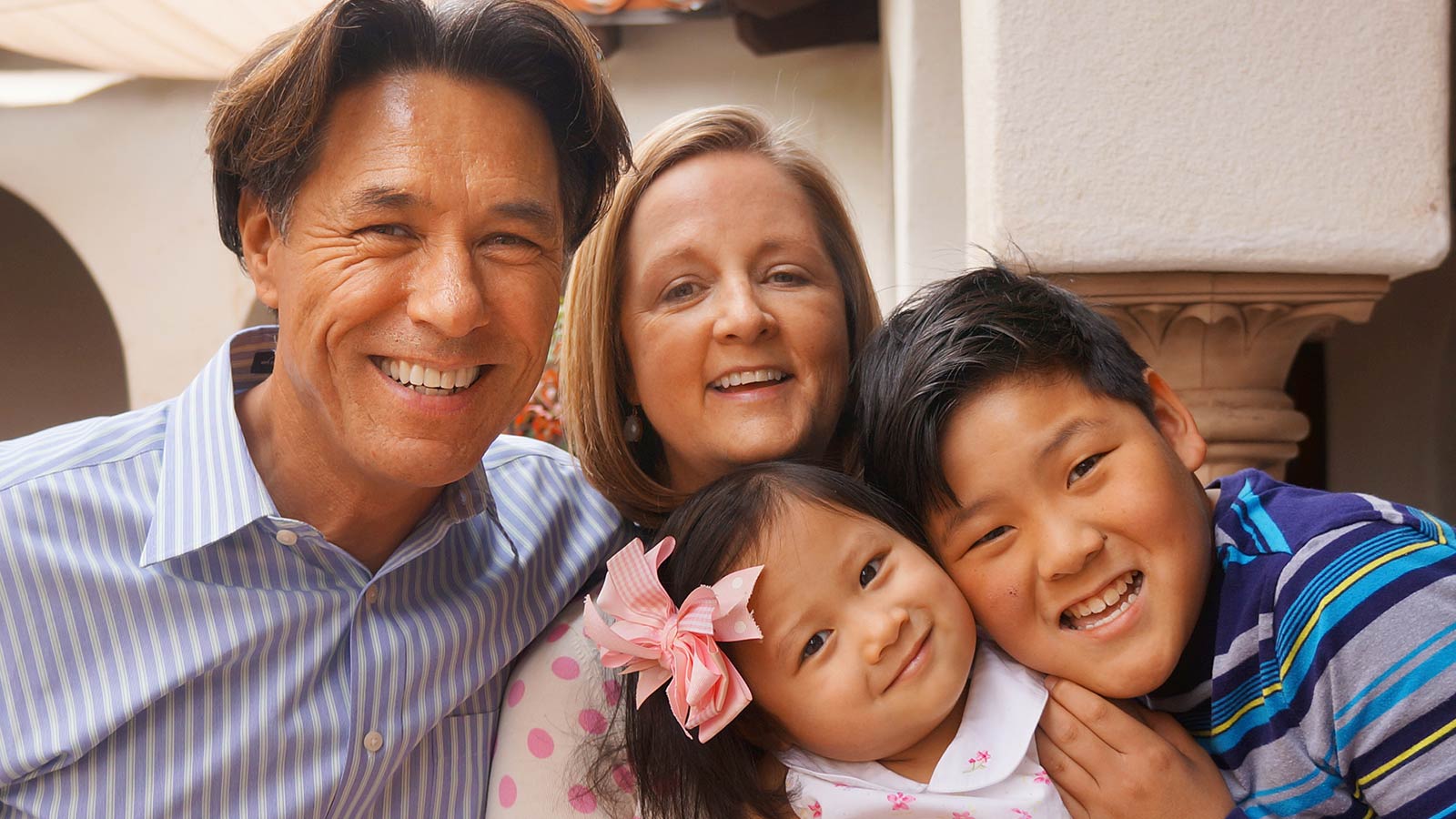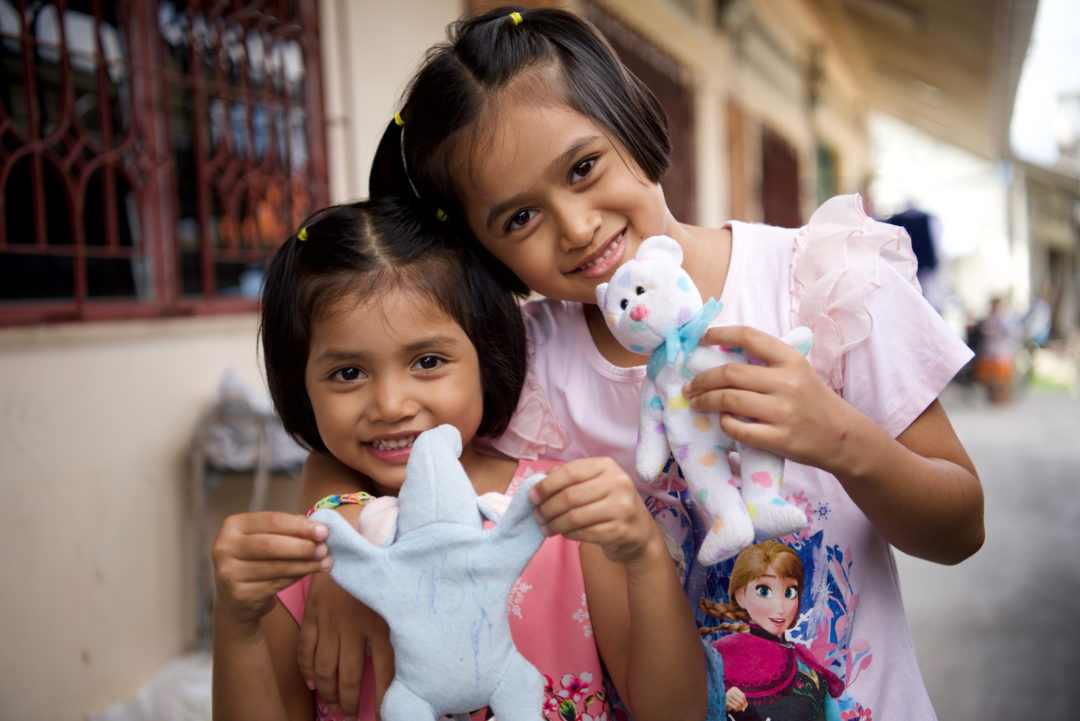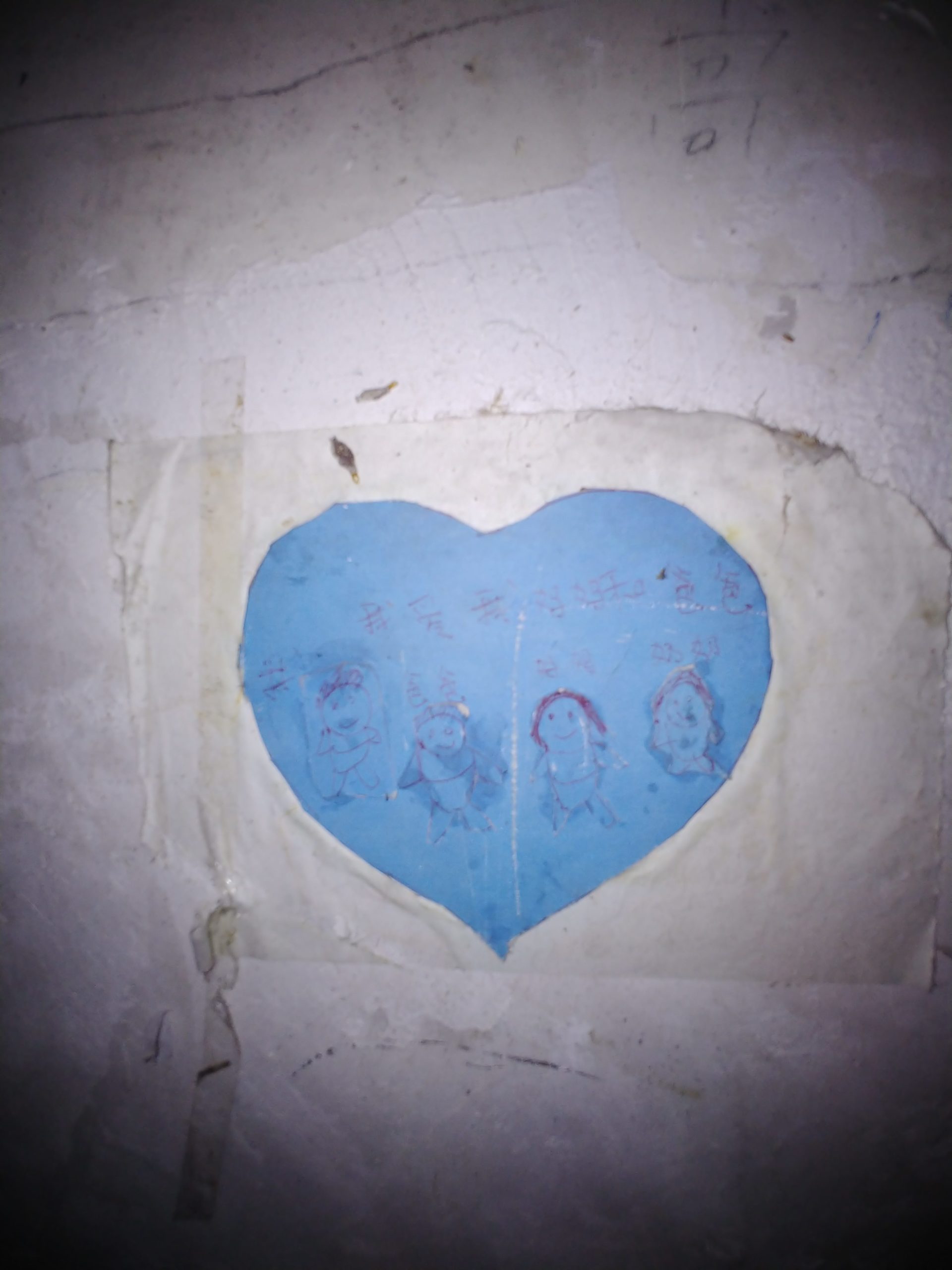If you’re thinking about adopting a toddler in the care of a foster family overseas, adoptive mom Jill Spitz has some advice for you.
One morning last December, my husband, son and I woke up in our fancy hotel room in Wuhan, China, fully aware that our lives were about to change. We ate our last breakfast as a family of three and marveled that the next time we slept there would be four of us.
That same day, a 29-month-old girl woke up in the bed where she’d slept since she was one month old, next to the only mother she’d ever known, with no idea she was about to be ripped away from life as she knew it. She hardly had time for breakfast before an orphanage director showed up and whisked her to a children’s welfare institute, and then to a chaotic civil affairs office where she was pushed toward strangers while she searched desperately for a familiar face.
We were nervous. She was terror-stricken.
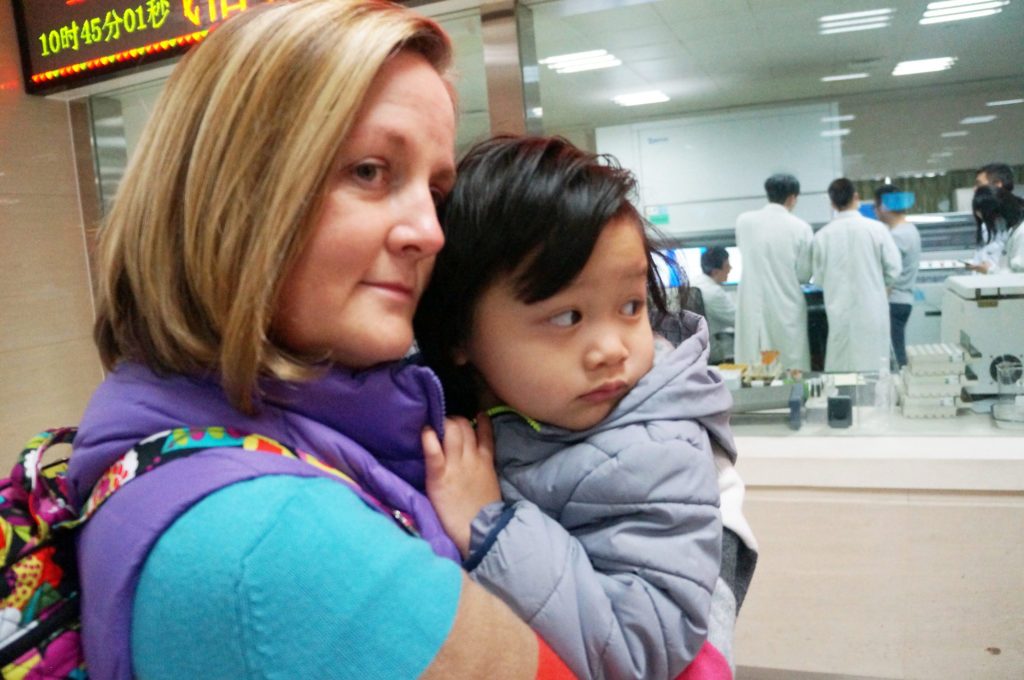
At the civil affairs office where we met her, Yi Yi was terrified and refused to acknowledge us except for a sweet but fleeting moment of eye contact with her new 10-year-old brother. The entire drive to the hotel she repeated, “Mommy hasn’t appeared yet.” In our room, she sunk deeper into despair until we decided to try a change of scenery and walked to a small indoor playground. There, we saw her first smiles as we made sand castles with kinetic sand.
“In what became a pattern in China, the rest of the day went well but the sight of pajamas at bedtime signaled to her that no one was going to take her home. “
In what became a pattern in China, the rest of the day went well but the sight of pajamas at bedtime signaled to her that no one was going to take her home. After we got her changed for the night she pulled on the four sweaters and three pairs of pants she was wearing when we met her, then stepped into her tiny red sneakers and headed for the door. For hours, we did a sad little dance where I gently led her back to bed and she quietly made her way back to the door. Over and over and over. Eventually she surrendered, laying in bed with the covers pulled over her nose and her wide eyes darting around the room. She sobbed the same phrase for so long that I sent a voice clip to a Chinese friend. The translation was gut-wrenching: “Mommy, come back.”
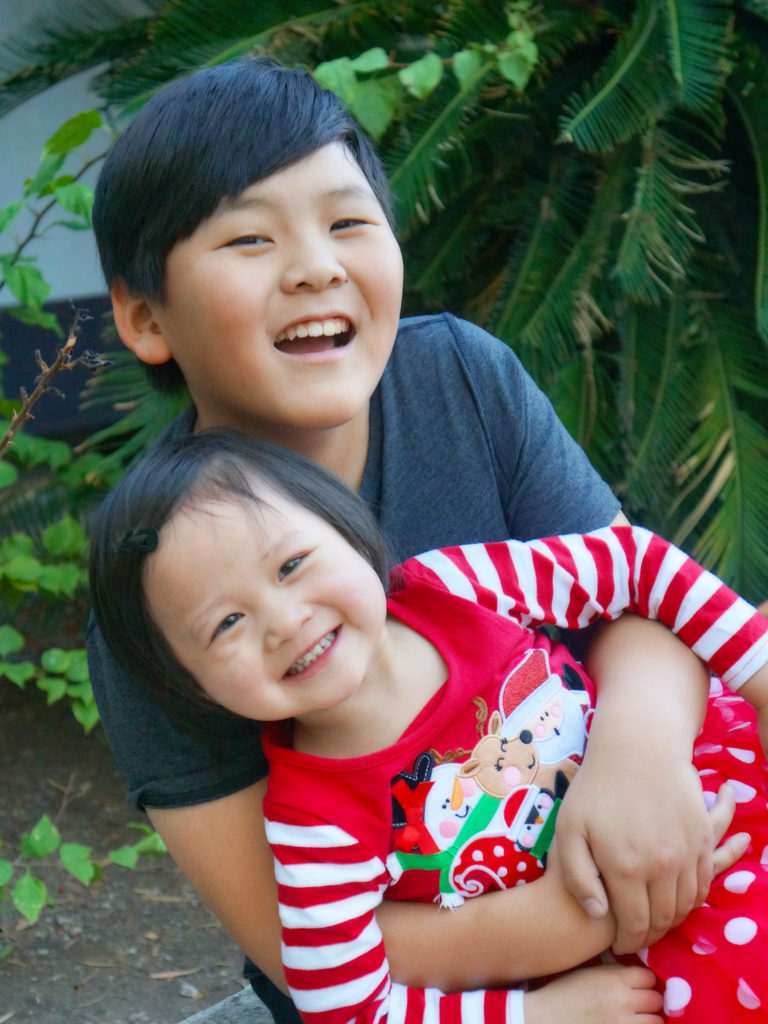
What got us through the toughest moments was a thread in the Wuhan adoption Facebook group, in which families shared their experience adopting toddlers from foster care.
I read about children trying to break through hotel windows and claw their way through hotel doors. I read of toddlers ripped apart by grief. I read that many new parents in those moments questioned whether they were doing the right thing by taking these children away from their foster families.
I am forever grateful that my daughter was loved in her infancy, that she learned how to bond and to be part of a family. Those same blessings made the transition tough for her, but they also helped her attach fiercely to us and to adjust to a new life in a strange land. The experience was so different than adopting our son from an orphanage nine years earlier and it taught us some lessons that I hope might help another family adopting a toddler from foster care.
Lessons such as:
You look, smell and sound weird.
Before she met us, our daughter understood her place in the world, with a home she knew and a foster mother she adored. Although she had been told she was being adopted and had seen the photo album we sent, she had no real understanding of what was happening. We knew we were bringing a new member into our family. She thought she was being kidnapped.
It’s too early to tell grief from typical toddler behavior.
Yi Yi was “a terrible two,” as our son says. She threw herself on the ground when she didn’t get her way. She bit her brother when she was over-stimulated at the zoo. But until we knew her better, it was impossible to tell what was typical toddler stuff and what was due to the loss and trauma she was experiencing.
Give it time. Then give it more time.
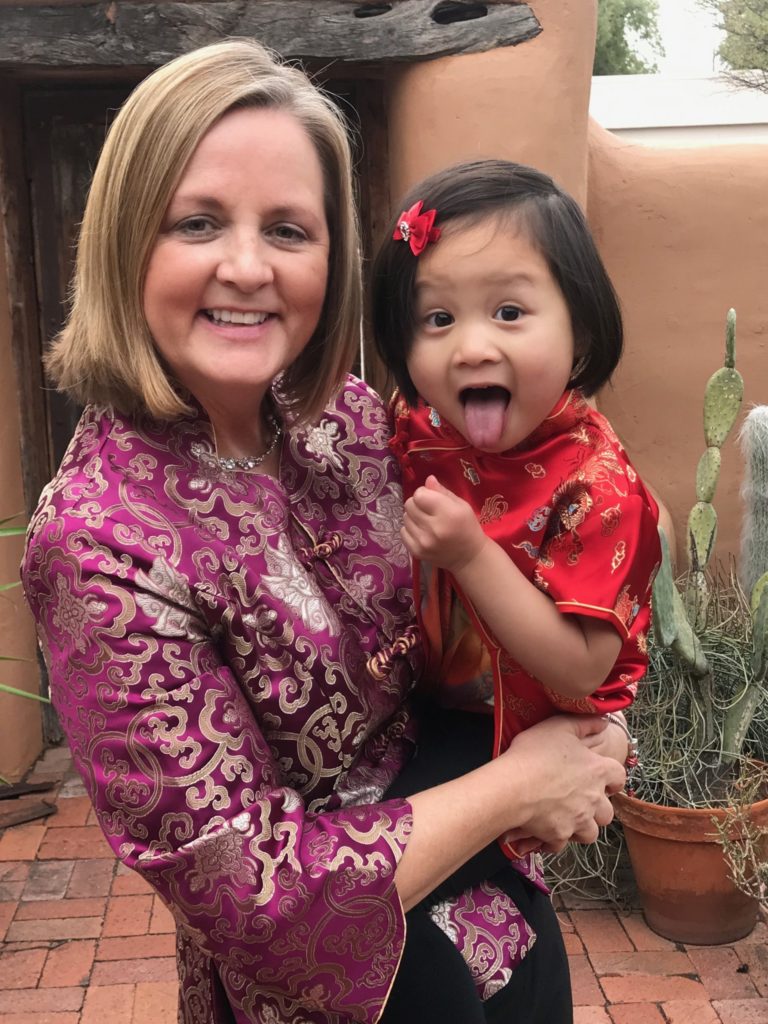
You may be thrilled about your expanding family, but your child is hurting. It is tough to see raw grief consume a tiny person, and parental instinct tells you to try to make it better. But we found it was important to acknowledge Yi Yi’s pain and to give her room to grieve. We assured her it was okay to feel sad and to miss her foster mommy.
Don’t take it personally.
When the child you have longed for is desperate to get away from you and go home, it hurts. But it can’t be about us. I tried never to forget that we chose this and we understood what was happening; Yi Yi had the benefit of neither of those things.
In an orphanage for 16 months, our son learned there was no point in crying, that no one would come to soothe him. In a foster home for 29 months, our daughter learned that families are about love and that parents make life better. Losing her foster family caused her pain, for sure, but having a foster family made her the happy, loving and well-adjusted child she is already turning out to be.
Jill Spitz | Tucson, Arizona
Advice from Marissa Robello, LMSW, CSWA , Holt Clinical Social Worker
All toddlers need consistency, mentoring and nurturing.
But when adopting a toddler, it is especially important to understand how traumatic it can be for them to lose their lifetime of comforts and expectations in a matter of minutes. Toddlers feel intensely but lack the capacity to make sense of their feelings. When a toddler’s expression of grief, fear, frustration or sadness comes out — and I assure you, it will — it will likely appear as challenging behavior. Some behaviors stem from a primitive fear response. Some are developmentally appropriate ‘toddlerisms.’ But both happen in a different part of the brain from complex thinking and emotional regulation.
Your child is not trying to hurt you.
Remaining calm, present, empathetic and consistent during a behavioral episode is the single greatest therapeutic tool you can offer your child. This modeling is, in part, how children learn to trust their parents and regulate their own emotions.
Be mindful of yourself and your needs.
All parents have triggers. The best parents are able to identify theirs and develop ways to calm themselves before addressing their child’s behavior. Whether it’s a few deep breaths, ten minutes of quiet time in the morning, daily exercise, a therapist or parent coach, identify what you need and then get it! Effectively parenting a toddler — any toddler — requires a lot, so bolster your support network before you are in the trenches.
Find resources and use them.
Using a mindful parenting approach that is trauma-informed and rooted in connection, like Trust-Based Relational Intervention (TBRI), will help your adopted child reach their optimal potential peacefully and playfully. I recommend the books “The Connected Child,” “The Whole Brain Child” and “Parenting The Hurt Child” to learn more about parenting from a place of connection to heal trauma.
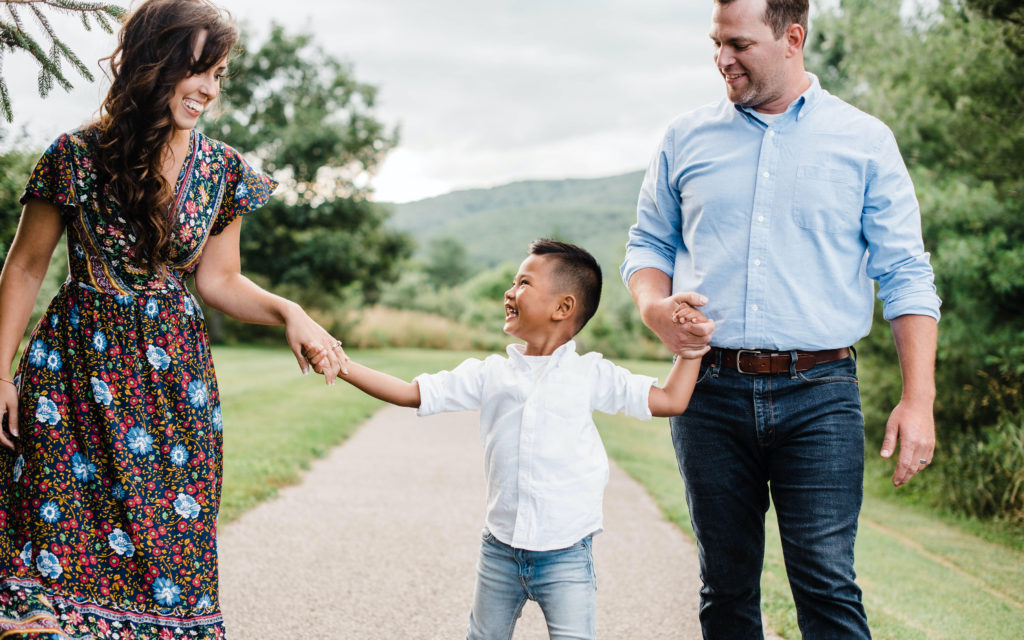
Learn More About International Adoption
We work with families in all 50 states to find loving homes for children from 11 locations around the world!
